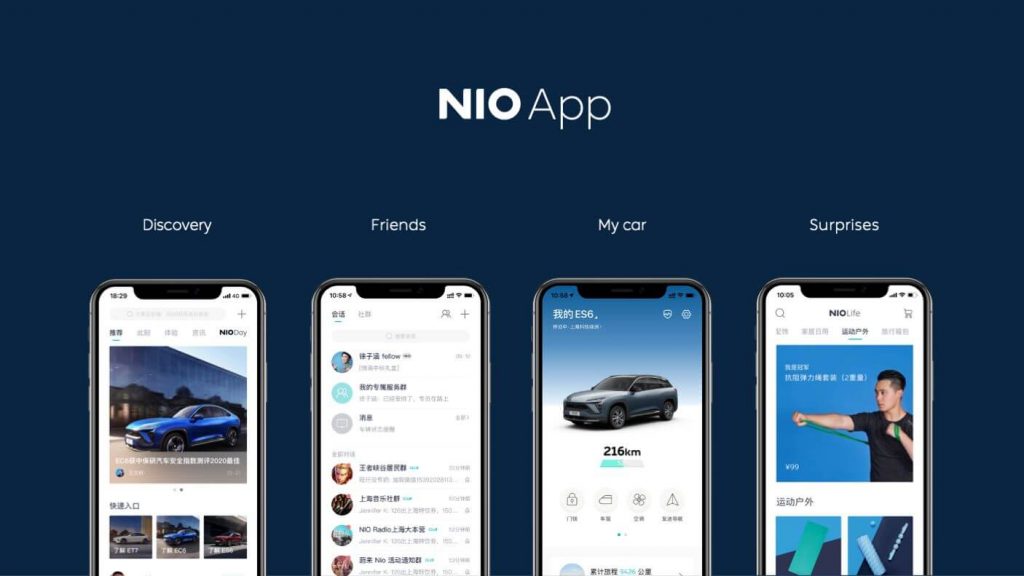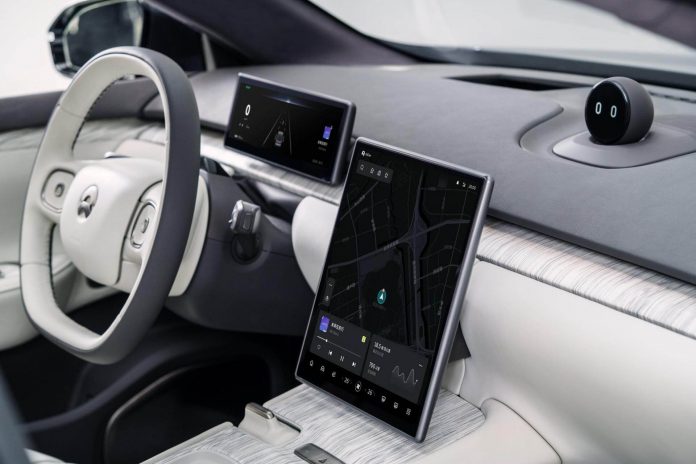Nio‘s William Li said the Nio phone is about providing a better digital key experience for car owners, and this article explains how.
Nio (NYSE: NIO) founder, chairman, and CEO William Li previously said the electric vehicle (EV) maker’s foray into phone making is about giving owners a better digital car key experience.
Li didn’t mention how the Nio phone will provide a better experience than other brands of smartphones, but a recent report, however, provides a good reference.
There are very complex interests between car companies and phone makers in the matter of turning smartphones into car keys, said a report by local media outlet 36kr yesterday.
For a car company, they need to break through multiple hurdles if they want to turn a phone model into a digital car key that is both connected to the vehicle and has location capabilities, according to the report.
Taking the Bluetooth car key, which already has mature technology, as an example, in order to make a smartphone equipped with Android system turn into a digital key, it not only needs to rely on Bluetooth communication, but also requires the phone to call the vehicle control app.
In the Android system, there are mechanisms to kill background apps, and the vehicle control app can easily be exited. This can lead to an unstable digital car key experience, causing complaints from both car owners and automaker developers.
“You can’t say with certainty that it’s something they [phone makers] do on purpose, but the solution is there, which is to pay them a fee and thus ensure that your own car key apps don’t get killed in the background,” the report quoted a car company engineer as saying.
By paying a fee to the phone maker, car companies can ensure that their own car-control apps don’t get shut down in the background too often.
However, paying the fee doesn’t necessarily solve the problem entirely, as car companies are reluctant to pay too much for it, and if the amount is too small, the phone makers have no incentive to provide a better experience, the report noted.
The only smartphone makers currently working with Nio and Li Auto are Oppo and Vivo, neither of which are in the car making space. And even the not-so-complex digital key partnership was essentially a 2-3 year effort to realize, the report said.

This was the first major reason that contributed to Nio’s Li’s decision to invest a lot of resources in developing phones on its own, according to the report.
Another reason for Nio to get into phone making was the difficulty it would face with the closed Apple system if, in addition to Bluetooth car keys, it wants to offer UWB (Ultra Wide Band) car keys with identification capabilities.
The current mainstream digital car keys communicate with the help of Bluetooth on the phone, but do not have the ability to locate. The Bluetooth car key can unlock the vehicle when the phone is close, but cannot determine who is carrying the phone or which position he/she will be sitting.
As for a car company like Nio, which is aiming for the premium market, positioning and identification capabilities are necessary to allow for more interaction between the car and the phone, 36kr’s report noted.
The UWB feature enables centimeter-level positioning, which allows cars to identify the driver, front passenger, and even rear passengers, so that the cars can adjust settings and welcome effects in advance for a better experience, the report said, citing an industry insider.
In March last year, Li said that Apple is very closed to the automotive industry, for example, Nio’s second-generation platform models come standard with UWB, but Apple doesn’t open the interface.
From the user’s interests and experience, Nio needs to study cell phones and car-centered smart terminal devices, he said at the time.
Available public information shows that as of now the only car company that has obtained Apple’s UWB development rights is BMW, according to the 36kr report.
Nio has joined the cell phone car key standard alliance CCC (Car Connectivity Consortium), and is about to work with other phone makers on the release of new standards, the report said.
The key technologies used by the CCC are BLE (Bluetooth Low Energy) and UWB, and it and Huawei‘s just-announced NearLink are both open standards.
The simultaneous advancement of these two sets of standards means that digital car keys have gone from being a convenient experience feature to a piece of the market that can’t be ignored, according to 36kr.
Nio’s first phone model has already been licensed to access the internet in China, meaning it’s not far from an official release.
On April 1, Li said during a forum on China’s EV industry that the Nio phone would be released and start deliveries in the third quarter.
On August 7, local benchmarking company Antutu shared key specs of the Nio phone on Weibo, showing that the model is powered by a Qualcomm Snapdragon 8 Gen 2 SoC, with 12 GB of built-in RAM and up to 1 TB of storage.
This article was first published by Phate Zhang on CnEVPost, a website focusing on new energy vehicle news from China.

